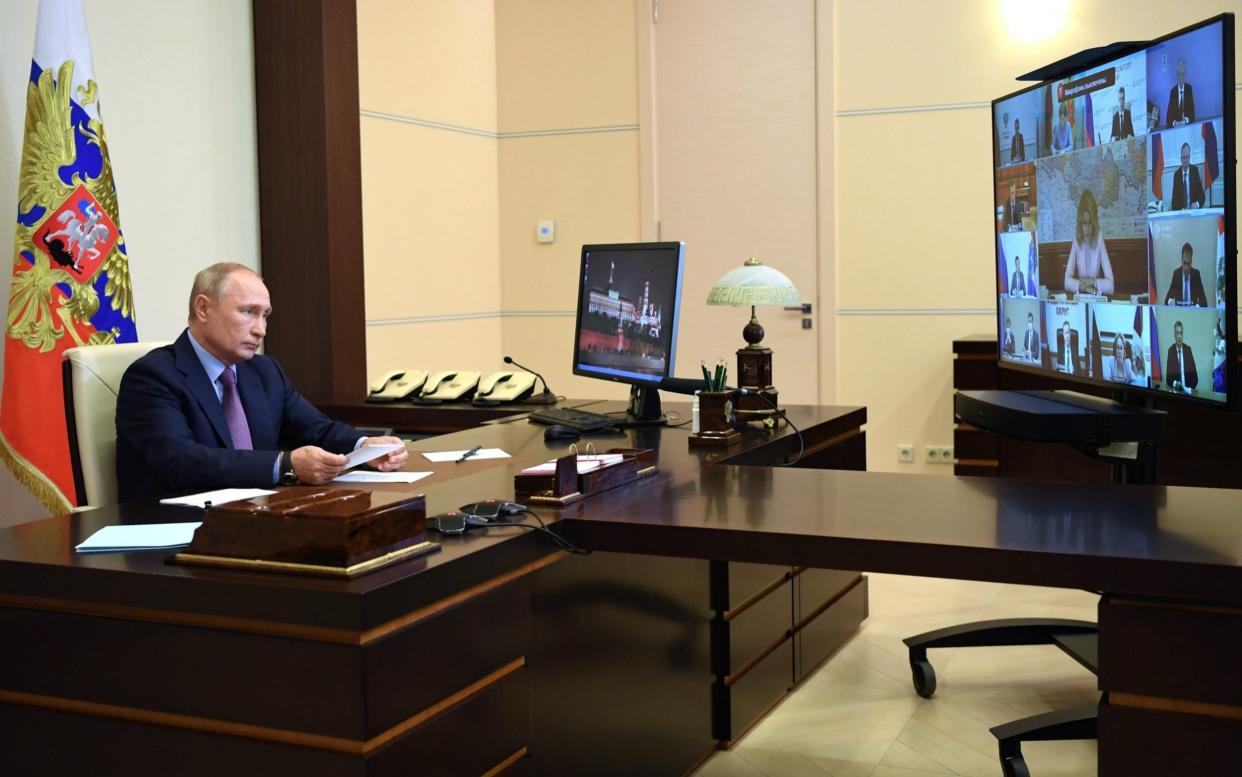Russia says it is close to world's first approval of Covid-19 vaccine

A top Russian official has said the country's coronavirus vaccine is nearing the end of clinical trials and is likely to get approval in mid-August – potentially making it the world's first approved vaccine against the disease.
Russia currently has at least three vaccines in development, and President Vladimir Putin, who chaired a conference call on the pandemic on Wednesday, has said developing one would be a matter of national pride.
One of the three vaccines is nearing the end of clinical trials and is likely to be approved next month, Tatyana Golikova, a deputy prime minister, told the meeting.
"We're planning to give it a state registration in August 2020 as long as there are clinical trials for 1,600 people following approval," she said, adding that Russia hopes to begin manufacturing the vaccine as early as in September.
Russia's previous announcement about fast-tracking clinical trials has raised questions about the safety of the new vaccine.
On Wednesday, President Putin assured the nation that it would not be used unless it is proven to be safe. "We have to be absolutely sure about the vaccine," he said in televised remarks.
"This is what we're going to proceed from before we make further decisions on coronavirus vaccination."
Ms Golikova's remarks follow a CNN interview with the head of Russia's sovereign welfare fund, which bankrolls research and development for the coronavirus vaccine at the Gamalei Institute of Epidemiology and Microbiology.
Mr Dmitriev said on Tuesday that the Gamaeli Institute is looking at August 10 as the earliest date to get approval, potentially making it the world's first approved vaccine.
"Russia will have got there first," he told CNN, likening the country's coronavirus research to the successful launch of the world's first satellite by the Soviet Union in 1957.
The fund's spokesman confirmed Mr Dmitriev's remarks to The Telegraph but would not offer further detail. He has said he hopes for Russia to produce about 30 million doses of the vaccine by the end of the year.
Russia has also struck manufacturing deals with five other countries and could be producing up to 170 million doses abroad this year, he said.
Mike Ryan, the executive director at the World Health Organisation, said earlier this months that "there is a long way to go" before the world gets its first approved vaccine.
The British Government, in the meantime, has signed a deal with pharmaceutical giants GlaxoSmithKline (GSK) and Sanofi Pasteur for 60 million doses of a potential Covid-19 vaccine if the tests prove to be successful.
The Gamalei Institute is a reputable research centre which has developed clinically approved vaccines against Mers and Ebola, but it has faced criticism from the scientific community after its director revealed that he and other staff self-administered the vaccine way before the start of human trials.
Mr Dmitriev, a close ally of President Putin, has also said he and his family have tried the vaccine.
Earlier this month, the UK's National Cyber Security Centre revealed that a Russian hacking group had attempted to steal vaccine research from the University of Oxford and Imperial College London.
The Gamalei Institute, which announced a successful end of the first phase of human trials just days before the NCSC's announcement, vehemently denied a suggestion that Russian scientists might have benefited from the hack.

 Yahoo News
Yahoo News 
